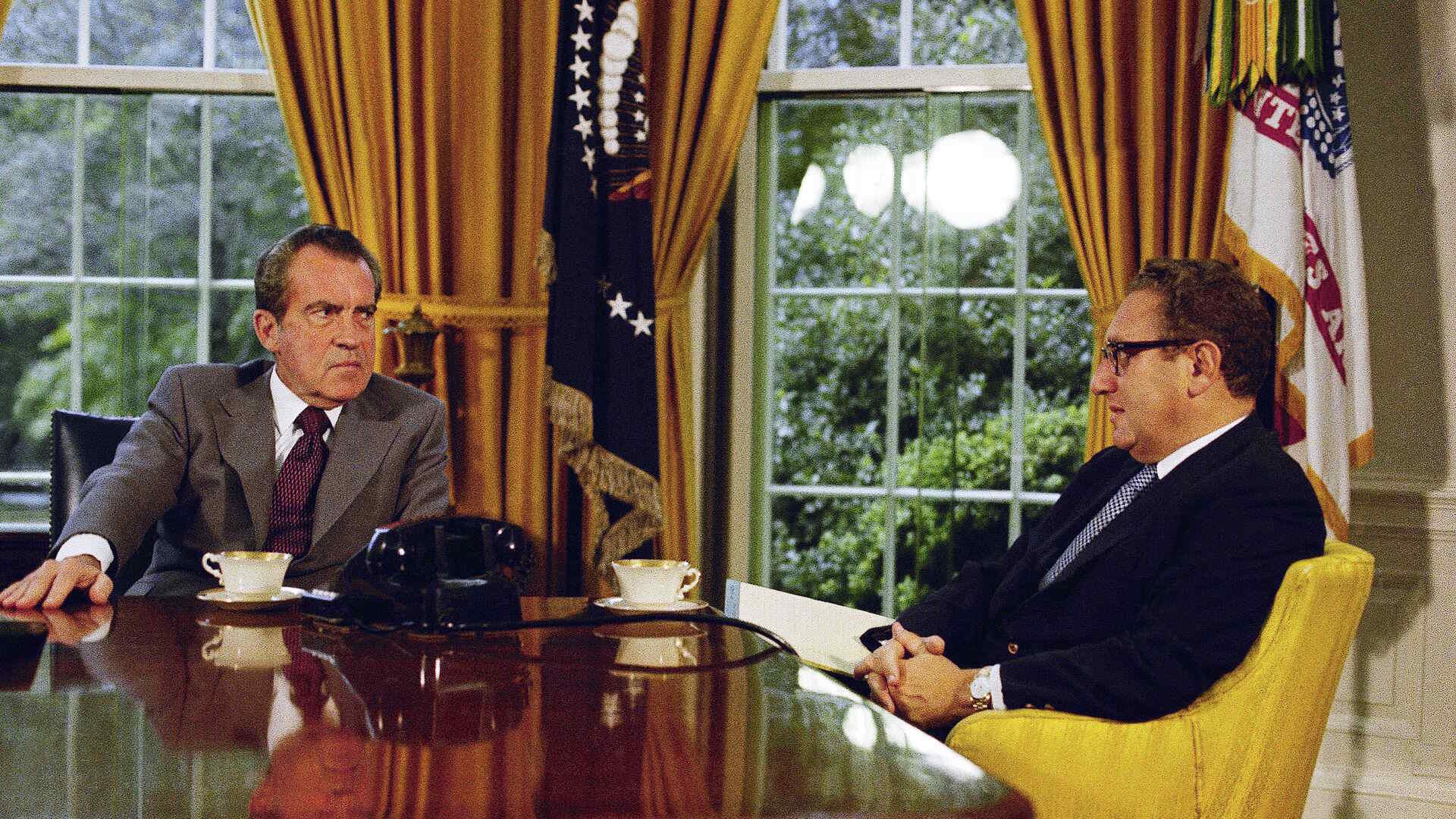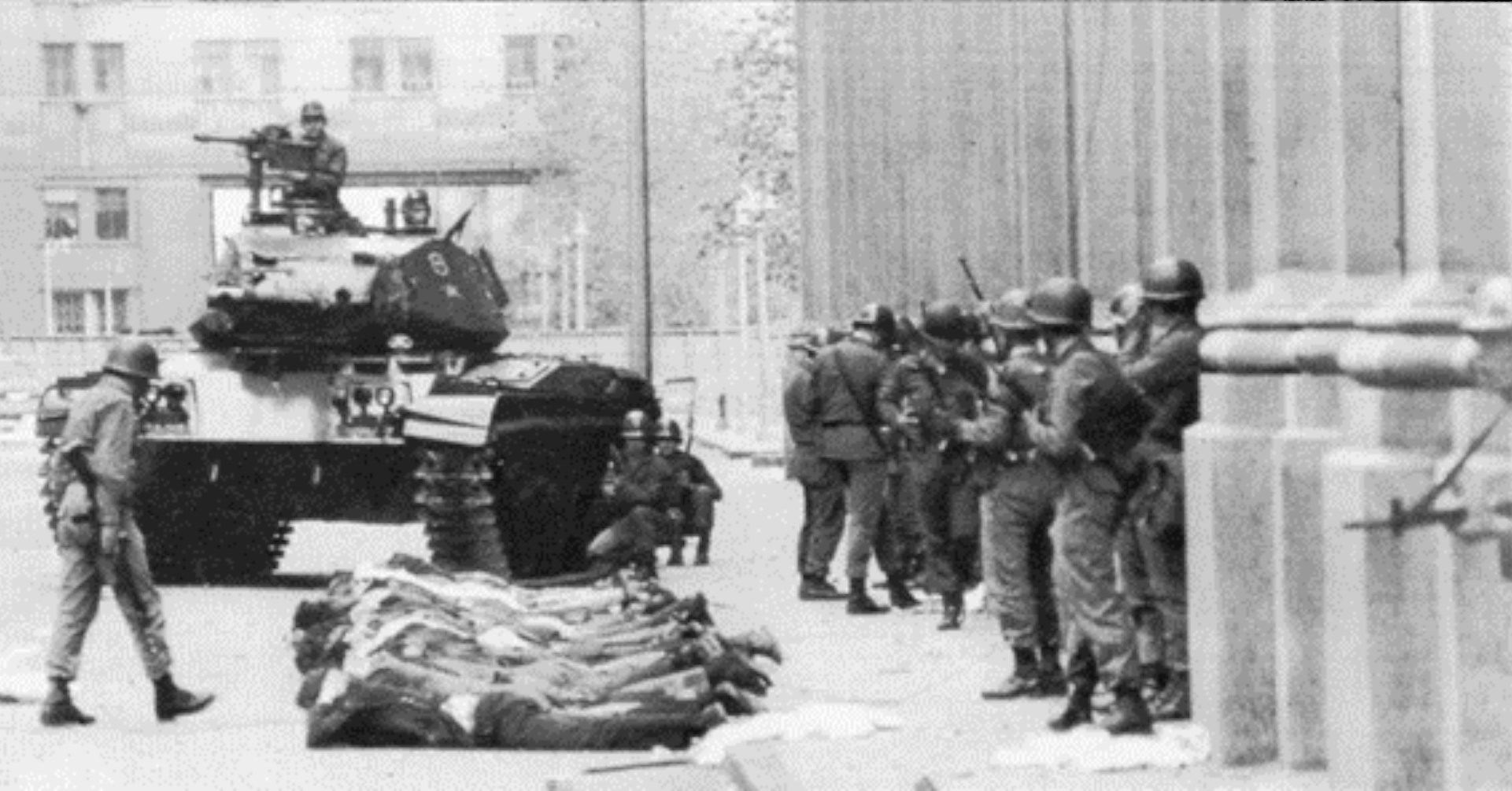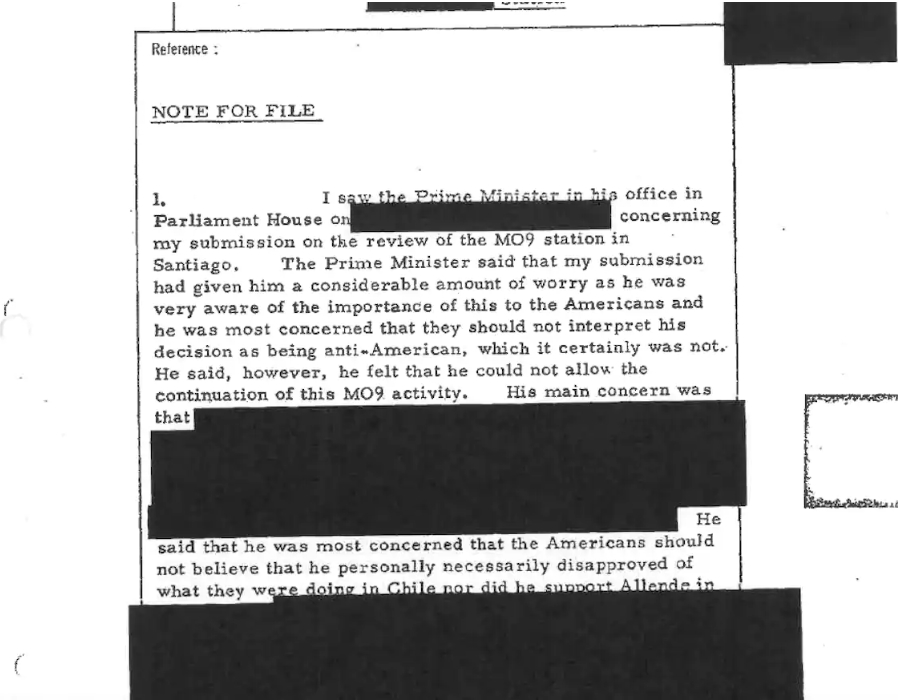2023-10-28
Half a Century of Silence: Australia's hidden role in Chile's 'Other 9/11'
By Senator Jordon Steele-John
This month we remember the 50th anniversary of 'The Other 9/11': the violent overthrow of the democratically elected Allende government in Chile and the emergence of a murderous military junta led by Augusto Pinochet. But less known is Australia's covert role in supporting U.S. and CIA operations that facilitated this regime change.
Salvador Allende’s party, Unidad Popular (Popular Unity), was the world’s first democratically elected socialist government — a unique experiment in radical democracy. Allende’s vision for Chile was one that would challenge its subordinate position in an international system dominated by the U.S. and emancipate its mining industry from U.S.-based multinationals. Yet this was only a piece of the national project. Under Unidad Popular, Chile significantly expanded education, food and housing assistance, and implemented the first universal healthcare system in the Americas.

Richard Nixon and his National Security Advisor, Henry Kissinger, explicitly noted the potential ripple effect of a successful socialist government, seen by Kissinger as “one of the most serious challenges ever faced in the hemisphere”. As such, Nixon and Kissinger took the fate of the Chilean people and placed it in the hands of U.S. corporate and geopolitical interests.
“I don't see why we need to stand by and watch a country go communist due to the irresponsibility of its people. The issues are much too important for the Chilean voters to be left to decide for themselves.” ̶ Henry Kissinger
Through covert CIA activities and economic sanctions, the U.S. was extensively involved in undermining Allende’s political project, fanning the flames over several years to create conditions ripe for a coup.
But the Allende government was keeping a close eye on CIA operatives, and the CIA needed agents with less heat. So the U.S. called upon Australia — its trusty deputy for security and foreign affairs matters. Just like Vietnam, just like Iraq, the Australian government willingly obliged. Liberal foreign minister, Billy McMahon, gave approval to ASIS for the establishment of a base of operations in Santiago to support CIA activities in Chile.
These agents were present for the three years leading up to the coup, and ASIO agents would hang around in the Australian embassy even during Pinochet’s regime, masquerading as immigration officers.

Under Pinochet, over 3,000 were murdered, over 100,000 tortured, and 200,000 Chileans exiled. This is without going into the ongoing impacts of the Pinochet regime’s project of state terror.
In 1973, then-Prime Minister Gough Whitlam ordered the closure of the base knowing that any publicity would put him in “an extremely difficult political situation”. He also admitted that it would be impossible to present Australia's presence in Santiago as serving direct Australian national interest.
The only reason for Australia’s involvement can be subservience to the U.S. foreign policy interests of Nixon and Kissinger, evidenced by the fact that released documents show Whitlam was “most concerned that the Americans should not believe that he personally necessarily disapproved of what they were doing in Chile nor did he support Allende”.

While Whitlam eventually acknowledged Australia's involvement, no government has fully disclosed its extent or acknowledged the harm caused by Australia's actions, much less apologised to the Chilean people. Worse still, both Labor and the Liberals refuse to this day to reform the various parts of the National Security Apparatus' in a way that would prevent these covert actions from occurring without parliamentary oversight.
And there have been opportunities to do so, including the recent National Security Legislation Amendment Bill which expanded the Parliamentary Joint Committee on Intelligence and Security from 11 to 13 members. Currently, the Committee has the ability to investigate government intelligence operations, albeit with minimal power. Even so, the Liberals and Labor gatekeep the Committee, ensuring that membership is confined to those who demonstrate commitment to the bipartisan consensus on foreign policy matters.
It is a democratic imperative that the Committee mirror the composition of MPs in Parliament. This would enable the Greens and other non-major parties to voice their perspectives on matters of intelligence and security, crucial for moving beyond the Orwellian-like bipartisan consensus on foreign policy — a consensus that too often diverges from public opinion, as illustrated by our engagement in Iraq, Vietnam and Chile.
Two open letters by the Chilean-Australian community have called for “an unreserved apology from the Government of Australia” because it “interfered in a sovereign nation in a clear breach of international law”. They also requested the declassification of all files regarding ASIS activities in Chile during the 1970s. Replying to the letters, the Department of Foreign Affairs and Trade’s reply did little to acknowledge the pain and suffering of the community, simply stating that, “this matter is the subject of ongoing legal proceedings, it would not be appropriate to provide any comment.”
The Administrative Appeals Tribunal (AAT), a body responsible for reviewing administrative decisions made by Australian government officials, has consistently rejected Clinton Fernandes' attempts to have all documents released detailing the involvement of ASIS and ASIO. In a similarly undemocratic fashion, all members of the AAT, including its presiding Federal Court judge, are appointed by the attorney-general. This means it exercises executive rather than judicial power, once again under the umbrella of the bipartisan consensus on foreign policy.
Through Clinton’s efforts, some documents were eventually released, although in heavily redacted form, doing little to show the extent of Australia’s involvement. The Australian public and Australian-Chilean community was thereby kept in the dark. The only step forward is to take the case to the Federal Court, but this means significant costs.
The Greens parliamentary team collaborated to bring the issue of Australia’s involvement to the fore in both the House and the Senate. However, our attempt to issue a Suspension of Standing Orders to talk about this was similarly shut down by the Labor government. They clearly saw the issue as damaging to their image. Labor has tried at all turns to minimise the acknowledgement of Australia’s role, refusing any accountability or transparency, even less than Whitlam during the 1970s.
In Question Time, I asked Foreign Minister Penny Wong if the government would show transparency on the issue to provide clarity to the Chilean-Australian and wider Australian community. Her response was muted. She told us that “it’s not a political issue”. She also said that “Labor’s position in relation to the coup … can be demonstrated by Labor history.” We know what that position is: secrecy.
As I said in my Senate speech, and echoed by Max Chandler-Mather and Elizabeth Watson-Brown in the House of Representatives and Federation Chamber, the Australian Greens express our solidarity with the people of Chile today and will continue to push our government to own its role in the overthrow of democracy. First and foremost, we call for the government to apologise to the Chilean people and Chilean Australians, who have either been immediately impacted by the Pinochet regime or have family members who have suffered terribly.
This is all a part of a bigger picture, one where both parties blindly follow the U.S. on matters of foreign affairs. We see that 50 years on, absolutely nothing has changed. AUKUS is just the latest nail in the coffin of the Australian government’s unwavering alignment with U.S. and corporate interests.
A serious look is needed at Australian foreign policy, intelligence operations and overall transparency in government, because right now, ‘Australia May Well Be the World's Most Secretive Democracy’.
Header photo credit: https://www.redpepper.org.uk/
